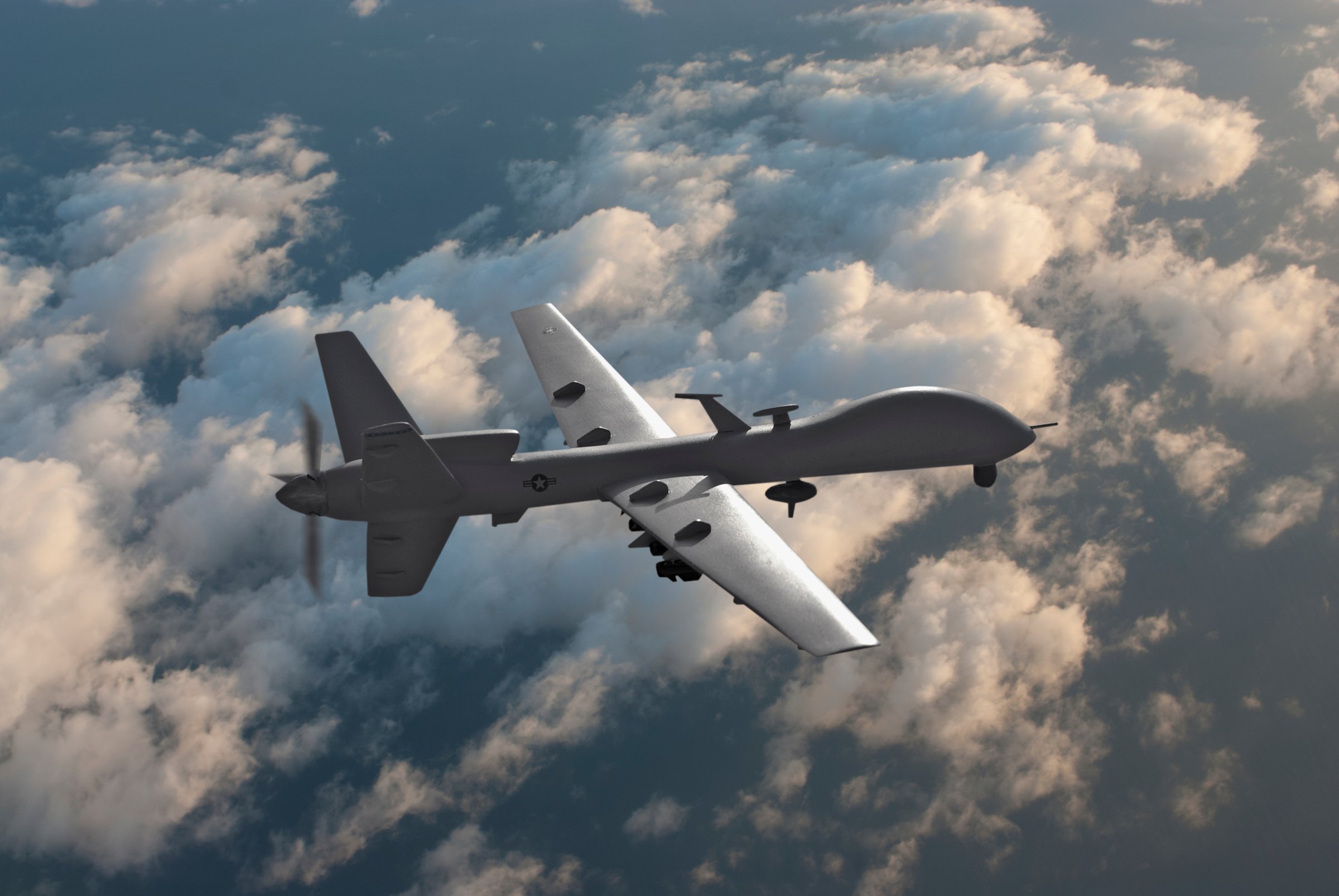
It’s no wonder the drone industry doesn’t like the word “drone.” Thanks to the work of human rights activists in exposing the ugly side of how Predator and Reaper drones kill innocent people overseas, “drones” can evoke a one-word reaction similar to the word “sweatshops”: yuck! Then there’s the transnational campaign to ban fully autonomous drones, a campaign that’s instilling public fear about a brave, new world where kill decisions are increasingly made by machines. Add to the mix the specter of drones being used by government agencies here at home to increase Big Brother’s ability to invade our privacy, and you have a reaction to drones that isn’t just disgust and fear, but defiance.
After Congress passed legislation in 2012 calling for the opening of U.S. airspace to drones by 2015, dozens of states began cobbling together legislation. Some bills restrict law enforcement agencies from gathering information on the public without a court order; others prohibit the weaponization of domestic drones. Cities began passing “no-drone resolutions” restricting the use of their airspace. The small town of Deer Trail, Colo., garnered national attention when it contemplated providing a bounty for shooting down a drone. Fox News commentator Judge Andrew Napolitano pronounced that the first American who shoots down a drone that comes too close to his children in his backyard will be an American hero. Matt Rosendale, a Montana state senator running for Congress, unveiled an ad where he points his rifle at a hovering drone and declares that he is ready to “stand tall for freedom.”
The drone industry reacted to its image problem with a disastrous campaign to simply drop the hot-potato term “drone” and instead use cumbersome names like “unmanned aerial systems,” “unmanned aerial vehicles,” “remotely piloted aircraft” or, worse yet, their acronyms (UASs, UAVs, RPAs). At the 2013 annual D.C. gathering of the drone lobby, the Association of Unmanned Vehicle Systems International (AUVSI), presenters continually pleaded with attendees to drop the term “drone.” The wireless password for the attending journalists was a not-so-subtle “dontsaydrones.”
AUVSI President Michael Toscano got in trouble during a March 2013 Senate hearing when he lectured the senators that they shouldn’t use the term “drone” because of its hostile connotation. Senator Leahy fired back, “I appreciate you telling us what we should call them, but why don’t you leave that decision to us. We’ll decide what we’ll call them and you call them whatever you like to call them.”
Recognizing defeat, the industry began a much more successful PR campaign touting the positive uses of drones. Indeed, there are plenty of good drones already in use, and as to future possibilities, the sky’s the limit. Drones can battle wildfires, track endangered species, predict weather patterns, provide farmers with crop analysis, deliver humanitarian aid and, yes, perhaps drones might one day deliver your Amazon packages or your take-out tacos.
And let’s face it: some drones are fun. There are tens of thousands of DIY hobbyists around the world who are crafting home-built drones to film themselves on the ski slopes or take aerial photos of their weddings. Even Martha Stewart has her own drone, gushing on Twitter that it takes amazing photos of her farm: “We love the possibilities and opportunities drones offer. Do you?”
But not even Martha Stewart can sweep aside the important ethical and legal issues that have arisen with President Obama’s killer drones, or the deployment of autonomous drones or the coming use of domestic spy drones. My organization, CODEPINK, has protested these issues at many a drone convention and Congressional hearing. We have tried to get the industry to work with us by supporting international and national regulations to make drone use compliant with international law and our moral values. But the industry has not wanted to alienate weapons companies like General Atomics, whose bread and butter come from lethal drones or powerful government agencies like the CIA.
Rather than ignoring or white-washing the problematic nature of killer drones, spy drones and autonomous killer robots, the industry—and drone enthusiasts—should work with the human rights and peace communities to distinguish between good, the bad and the ugly.
Medea Benjamin, the cofounder of the peace group www.codepink.org, is author of Drone Warfare: Killing by Remote Control.
More Must-Reads from TIME
- Cybersecurity Experts Are Sounding the Alarm on DOGE
- Meet the 2025 Women of the Year
- The Harsh Truth About Disability Inclusion
- Why Do More Young Adults Have Cancer?
- Colman Domingo Leads With Radical Love
- How to Get Better at Doing Things Alone
- Michelle Zauner Stares Down the Darkness
Contact us at letters@time.com